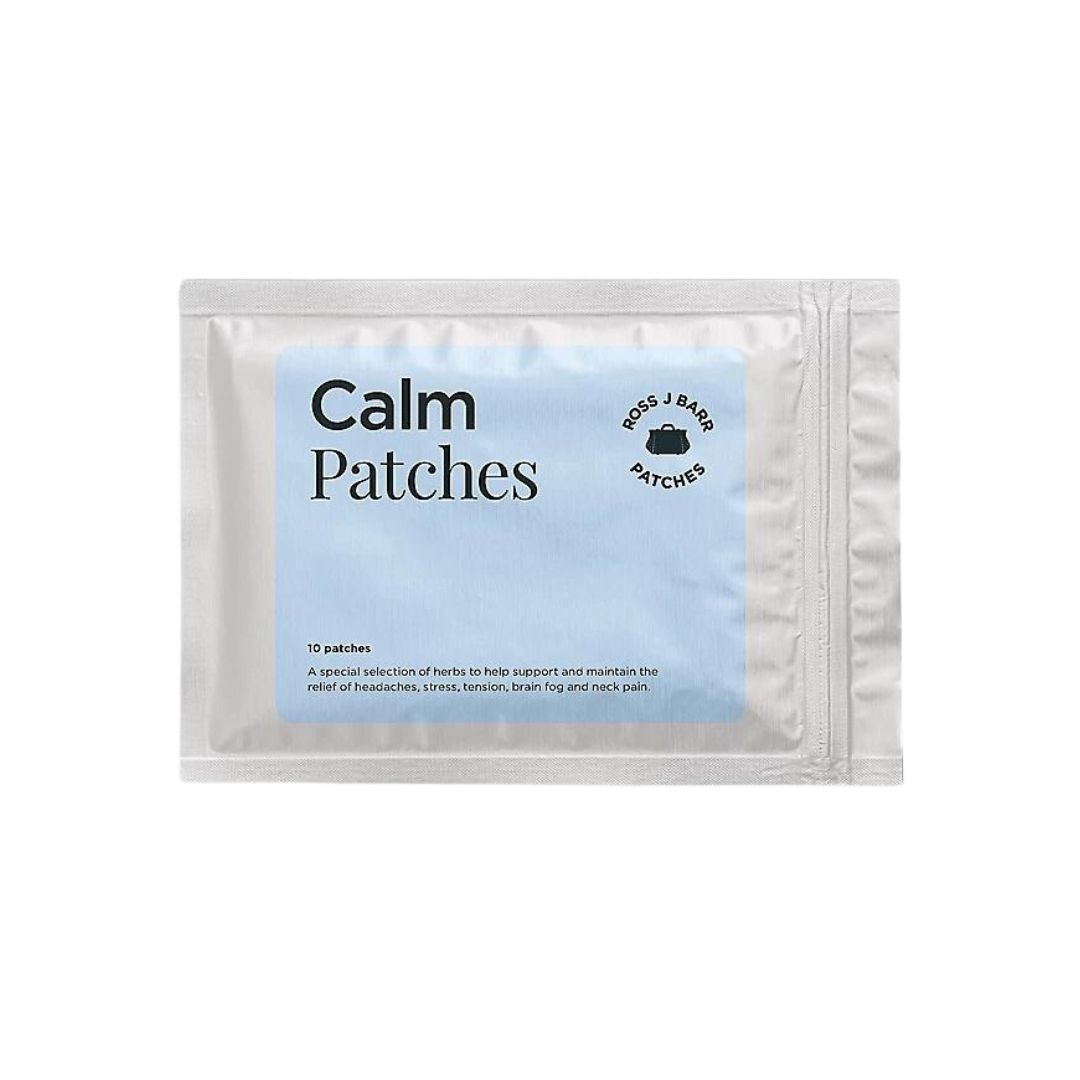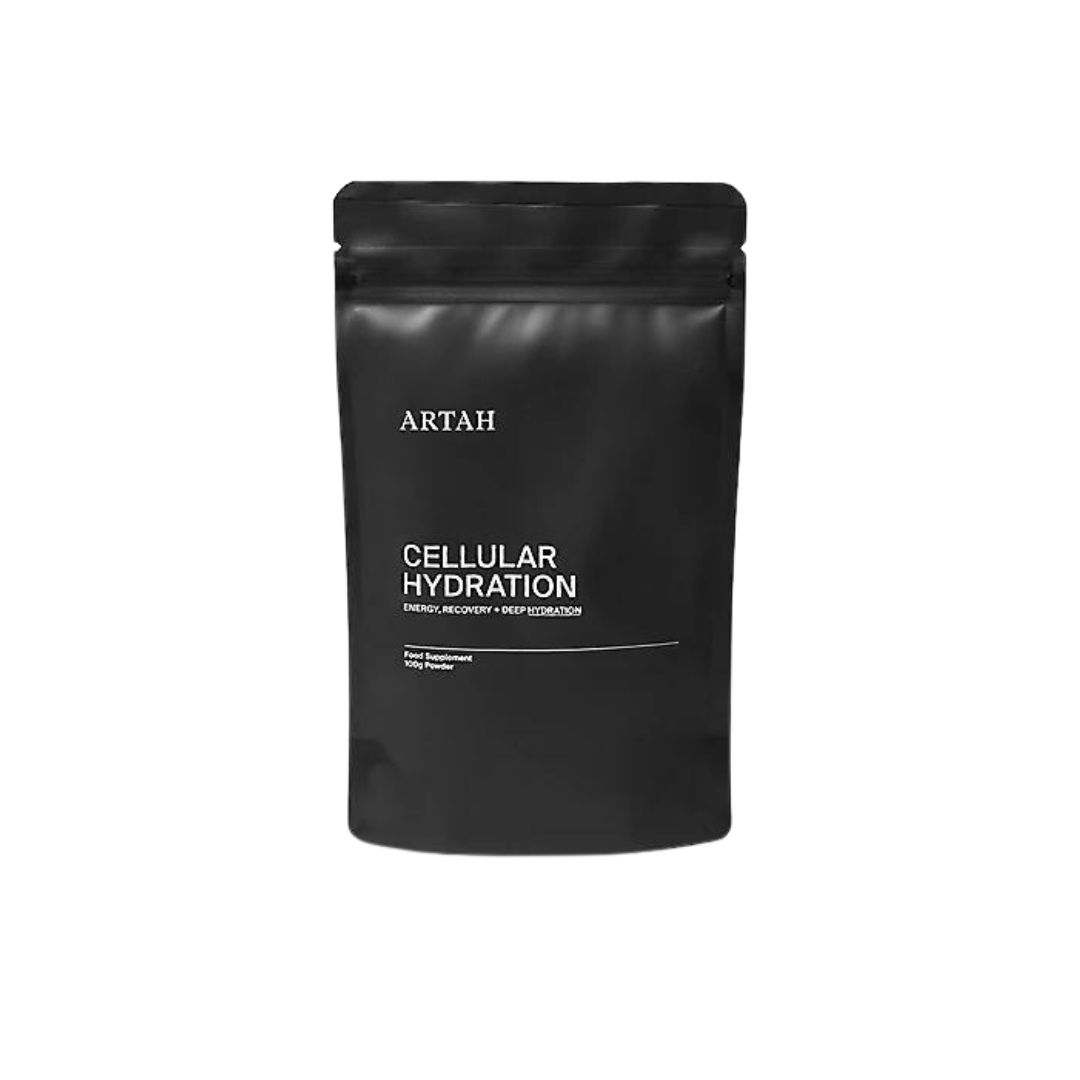As a Health Editor, this is the meal I always eat on a flight to avoid bloating and dehydration
Thank me later.
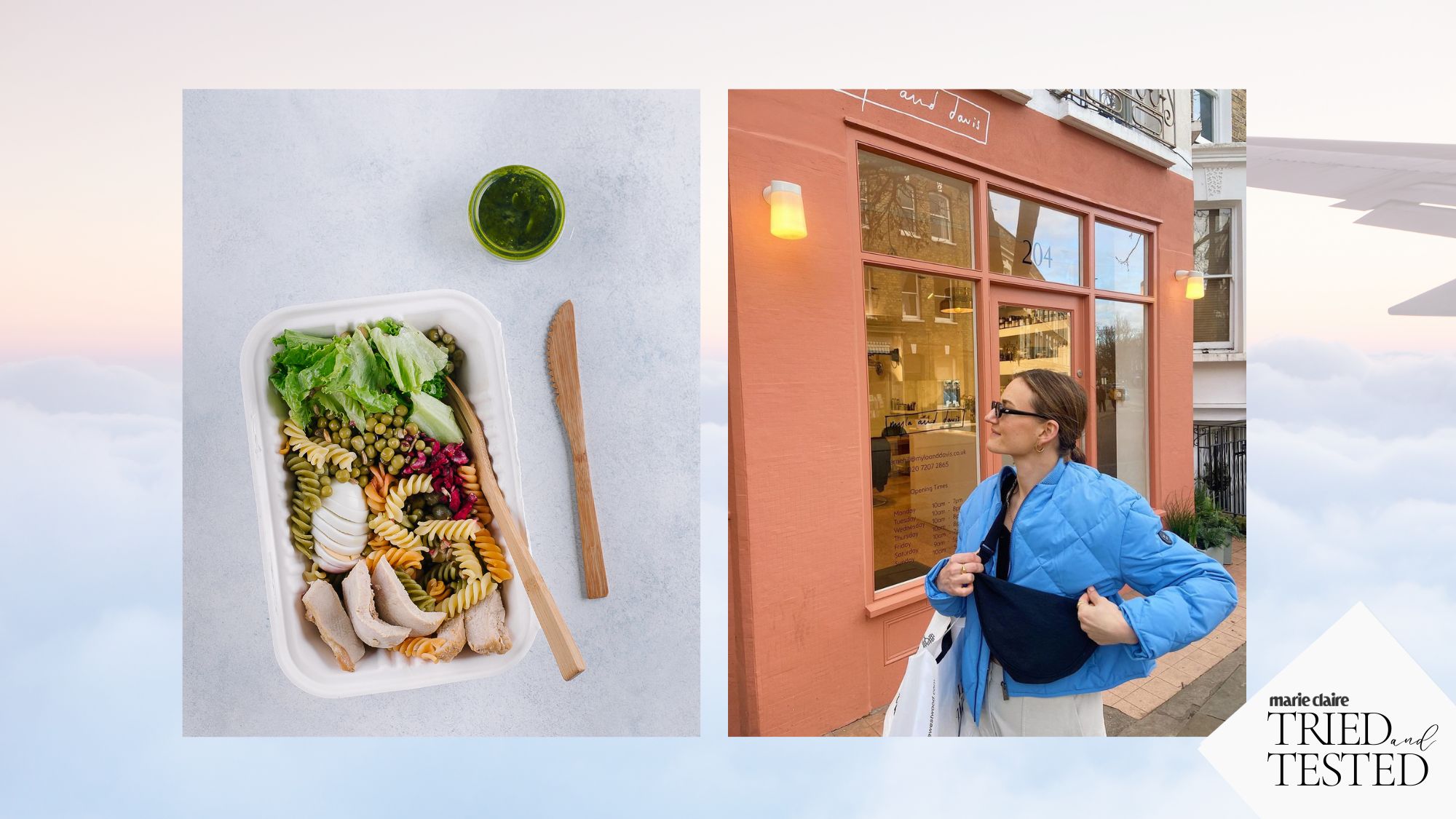
About to jet off on your summer holidays or just got back? While I've no doubt the majority of your brain space is taken up dreaming about sun, sea and sand, if you're anything like me, you might also be thinking about what to eat on the plane.
Hopping on a flight often marks the first day of the holiday, after all, and there's nothing worse than arriving feeling lethargic, sluggish, or just plain unwell. That's where thinking about the foods you're eating comes in - by no means a cure-all, but certainly a way to leave your body (and often immune system) feeling their best.
Trust me on this one - I'm a Health Editor who, although mindful of how I travel and how many flights I take a year, flies for both work and leisure occasionally. I'm also someone who bloats easily and often gets off a flight feeling pretty rubbish, and so have spoken to many an expert over my seven-year career about how, exactly, to exit that air cabin feeling the best I can.
Keen to read my formula for fail-safe eating on a plane? Keep scrolling and don't miss our guides to what to eat before a flight and how to get rid of a bloated stomach after flying, while you're at it.
Eating on a plane can be complicated - not thanks to this handy trick
1. Opt for east-to-digest, snack-like meals
According to Jo Woodhurst, Head of Nutrition for Ancient & Brave, going for small, easy-to-digest meals and snacks is key to feeling your best.
I like to take a Tupperwear containing the following:
- Vegetable sticks - anything like cucumber, carrot, celery, pepper, or radish
- Nuts, if the plane will allow you to take them on board - almonds, cashews or Brazil nuts
- Olives
- A side salad - normally spinach, rocket and some seeds
- Cheese cubes
- A wholegrain carbohydrate - pumpernickel bread, seed crackers, or oat cakes.
Woodhurst confirms that this is a great option, adding: "Opt for protein-rich snacks such as homemade trail mix, flaxseed crackers, or greek yoghurt, seeds and berries."
Marie Claire Newsletter
Celebrity news, beauty, fashion advice, and fascinating features, delivered straight to your inbox!
Registered nutritionist Clarissa Lenherr agrees, adding that nuts and seeds are a source of healthy fats, protein, and fibre, key for staying satiated and energised, and eating water-packed fruits and veggies contributes to your hydration levels.
Of course, there are also plenty of times when I get caught out and don't have time to prep anything before I fly (we're all human, after all).
When this happens, I normally pop to Pret at the airport and pick up a few of their vegetable pots. My favourites are their egg and spinach pot and chicken, avocado and edamame protein bowl.
Of course, if you're flying long haul this won't be enough to sustain you, so you might want to order one of the in-flight options here. While they're not the most nutrient-dense, pre-ordering the vegetarian or vegan in-flight option can at least be a nifty way to ensure your meal is made fresh.
2. Focus on hydration
Sounds obvious, but our bodies need even more water than usual when travelling. Why? Well, as Woodhurst explains, "Research points to a loss of around two litres of water during a long-haul flight. This, alongside low air pressure and low humidity levels in the cabin, can leave you dehydrated and feeling lousy."
Not to mention the impact dehydration has on our immune system. "Already with a lot to deal with on a flight, our immune system uses a key defence - our mucus membranes - to trap and filter our airborne bacteria and viruses," explains the pro. When we become dehydrated, our mucus membranes become dry, leaving us vulnerable."
Consuming plenty of water while on board helps counteract the drying conditions on planes that lead to brain fog, fatigue, swelling, dry and lacklustre skin and bloodshot eyes, she goes on.
Not a water fan? Try this: "Increase your water intake with frequent sips, rather than glugging down glassfuls," advises Woodhurst.
Some people also find infusing water with mint, berries, citrus or cucumber makes the taste more enjoyable.
3. Up your electrolytes
Did you know? When your body needs hydrating, sometimes it's important to look beyond the water and supplement. "Electrolytes can also be lost when you experience water loss coupled with poor food choices," explains the nutritionist. Why are these important, then? Well, "electrolytes are essential minerals such as sodium, potassium, magnesium, and calcium that play a vital role in the functions of your body."
I always take electrolytes with me when I travel - great for post-sweaty long runs at my destination and feeling my best while on the move. My go-to is the ARTAH Cellular Hydration blend.
That said, if you'd rather not invest in a supplement you're not sure you'll get on with, a cheap and easy way to up yours is to add a pinch of salt to your water. "Coconut water also naturally contains some electrolytes," she continues.
4. Opt for seaweed thins
Stick with us on this one. While you may not normally opt for seaweed thins as a snack, flying makes us crave sweet and salty snacks.
One of Lenherr's favourite snacks when flying is seaweed thins, a snack rich in essential vitamins and minerals. "Seaweed thins are great at satisfying your craving for a crunchy snack, making them a healthier alternative to crisps and other ultra processed snacks," she shares.
Of course, if you do fancy crisps or the like, go for it. You're on holiday, after all - just be mindful that they may add to your overall dehydration level if eaten regularly.
5. Be mindful of foods that will irritate your gut
Yep - in an ideal world, there are a few foods you should avoid eating while flying. Read: beans, pulses and spices. "They can be irritating for the gut and cause bloating," shares Woodhurst.
Of course, if you fancy a spicy chickpea salad pre-flight, go ahead - balanced eating is all about listening to your body and honouring your own cravings. Just know they have the potential to cause discomfort at some point down the line.
Similarly, Lenherr warns against fizzy drinks - "they contain high volumes of the gas carbon dioxide, which ends up in your digestive system," she explains. "Some of this gas can get trapped which can cause cramping and uncomfortable bloating" - and super salty snacks - "snacks high in sodium can contribute to dehydration, which is already a concern in the dry cabin air."
Shop my favourite travel essentials now:
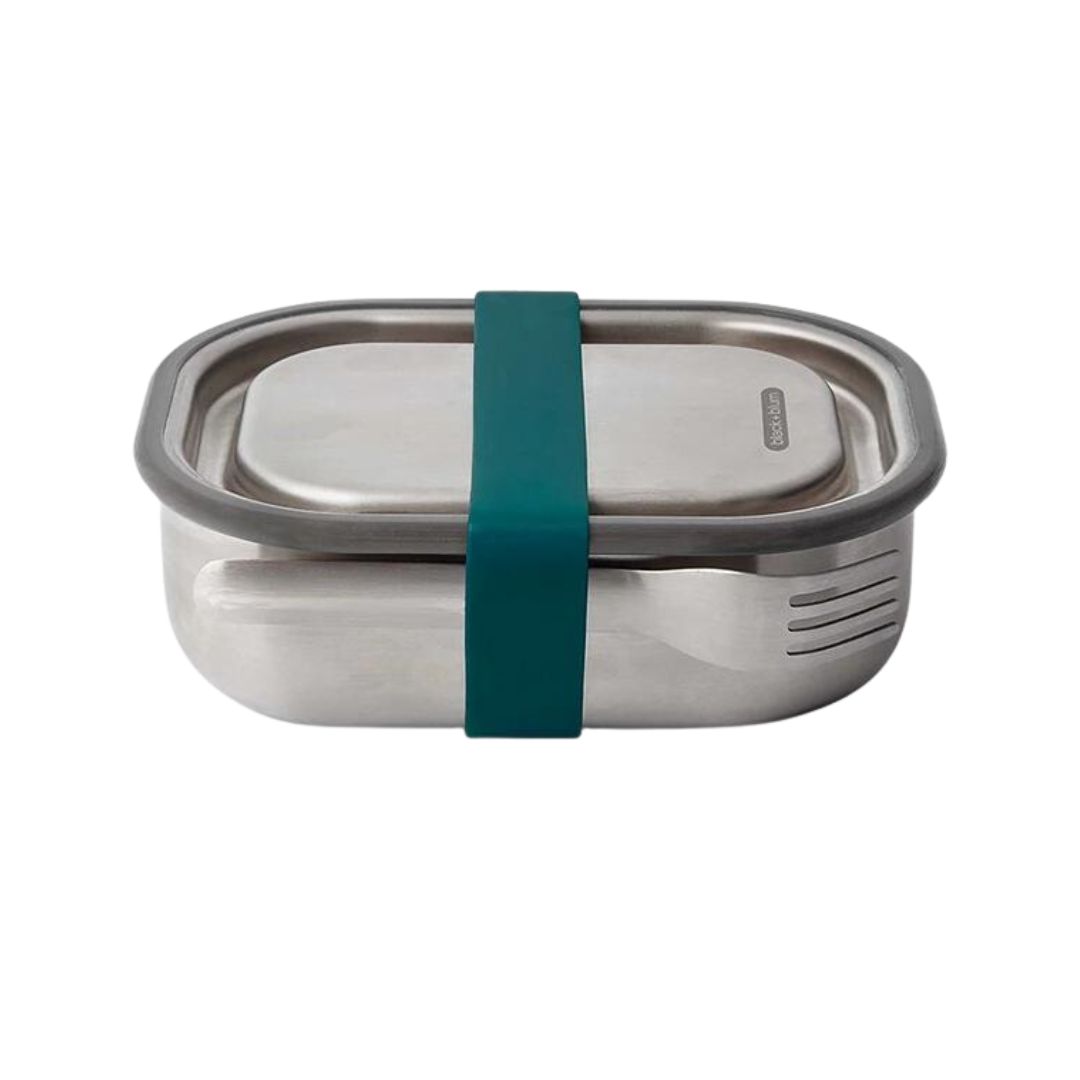
You might think this is a high price point for a lunchbox - it is - but I've had mine for around six years now and it never fails to disappoint. It never leaks and is ideal for plane carry-on snacks or lunch.
Can I bring my own food on a plane?
Yes, you can - and it can sometimes be a great way to save money if you're not a fan of airline food and would rather avoid expensive options at the airport.
According to the official TSA website, you're allowed to take solid food items can be taken in carry-on or checked luggage.
While you can take liquid or gels in checked luggage, any items larger than 100g can't be taken in hand luggage. While we all love a houmous pot, chances are you won't get it through security so best to leave at home.

Ally Head is Marie Claire UK's Senior Health and Sustainability Editor, nine-time marathoner, and Boston Qualifying runner. Day-to-day, she heads up all strategy for her pillars, working across commissioning, features, and e-commerce, reporting on the latest health updates, writing the must-read wellness content, and rounding up the genuinely sustainable and squat-proof gym leggings worth *adding to basket*. She also spearheads the brand's annual Women in Sport covers, interviewing and shooting the likes of Mary Earps, Millie Bright, Daryll Neita, and Lavaia Nielsen. She's won a BSME for her sustainability work, regularly hosts panels and presents for events like the Sustainability Awards, and is a stickler for a strong stat, too, seeing over nine million total impressions on the January 2023 Wellness Issue she oversaw. Follow Ally on Instagram for more or get in touch.
-
 I was told I was too girly to be gay — When will society stop judging women on how we look?
I was told I was too girly to be gay — When will society stop judging women on how we look?Why femme invisibility is a feminist issue
By Roxy Bourdillon
-
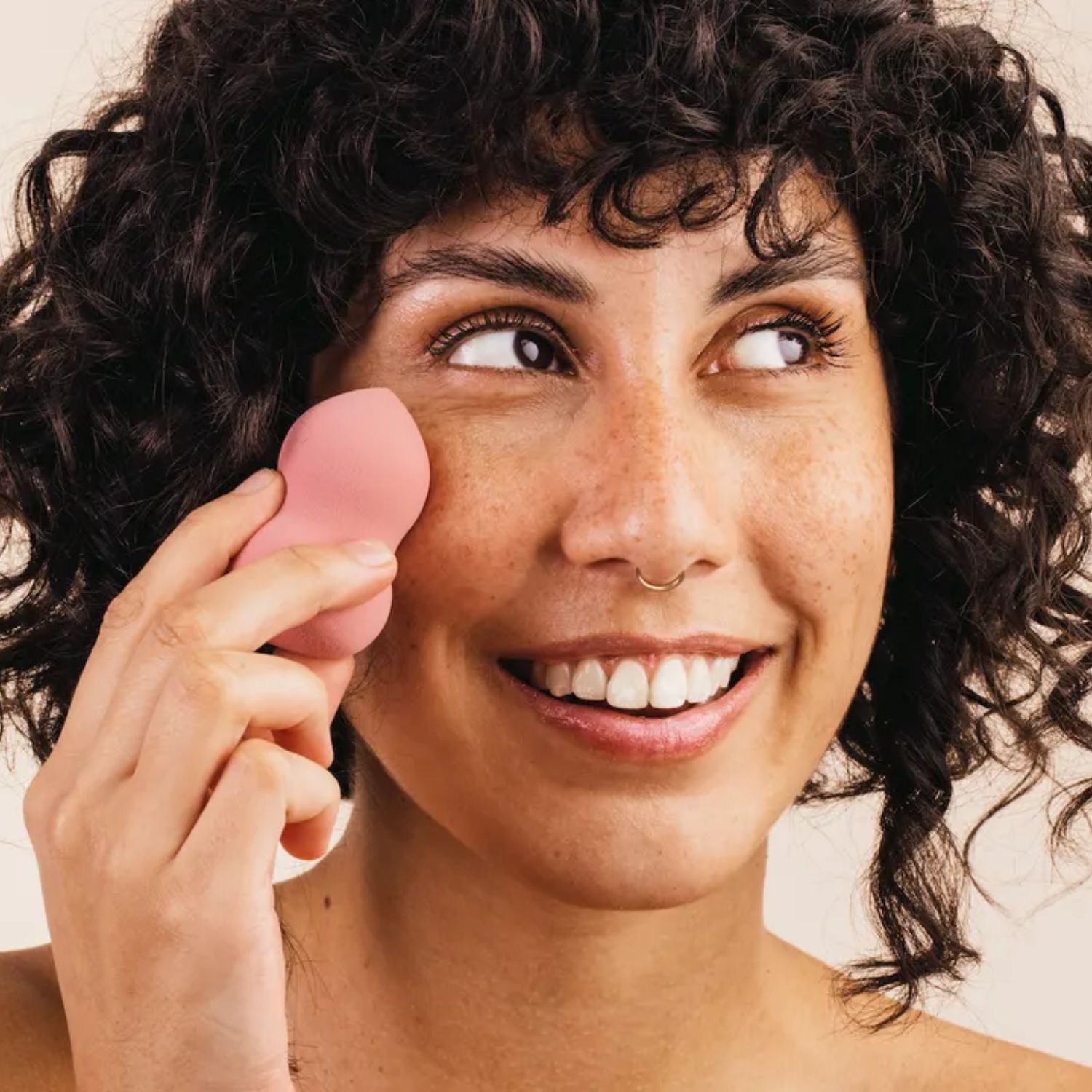 I have no time to be faffing with brushes, but a make-up sponge is an essential in my routine—here are the 6 best
I have no time to be faffing with brushes, but a make-up sponge is an essential in my routine—here are the 6 bestEssential for smooth, seamless skin
By Mica Ricketts
-
 I just tried Margot Robbie's favourite toning tool—after just 4 weeks I've noticed more lift and definition
I just tried Margot Robbie's favourite toning tool—after just 4 weeks I've noticed more lift and definitionProfessional standard results at home
By Jazzria Harris
